Resumen
Descripción
The literature on rough volatility has revealed that financial asset volatility exhibits highly irregular temporal dynamics, often characterized by a Hurst exponent significantly smaller than the Brownian threshold of 0.5. Traditional estimation techniques rely predominantly on the scaling behavior of second-order moments, which can be sensitive to noise, smoothing effects, and finite-sample biases. This work proposes a distribution-based methodology for detecting and estimating roughness in volatility time series, grounded in self-similarity and nonparametric statistical testing. The approach exploits the Lamperti transform to map stationary processes into self-similar ones. When applied to the log-volatility process—modeled here as a fractional Ornstein–Uhlenbeck (fOU) process—the transform yields a nonstationary sequence whose self-similarity exponent corresponds to the original Hurst parameter. The roughness of the original process can thus be estimated by analyzing the scaling behavior of the transformed distributions. This estimation is performed by minimizing the Kolmogorov–Smirnov (KS) diameter across rescaled cumulative distribution functions of the transformed process. Since the KS statistic captures the maximum distance between empirical distributions, its minimum identifies the scaling exponent that best preserves distributional invariance across time horizons. Unlike moment-based approaches, this method accounts for the full shape of the distribution and is robust to heavy tails or infinite-variance phenomena. Bringing these elements together, the Lamperti framework ensures that the roughness of the logvolatility can be consistently traced back to the Hurst exponent of the underlying fOU dynamics, while the KS-based distributional estimator provides a statistically rigorous tool for its quantification. The result is a coherent methodology that not only confirms the empirical presence of rough volatility but also grounds its estimation in a robust theoretical and statistical framework
Datos de la actividad
Patrocina:
Escuela Internacional de Doctorado y Cátedra de Economía Social de la Universidad de AlmeríaImparte:
Daniele Angelini (Sapienza, università di Roma)Fecha:
30 de septiembre y 1 de octubre
Dirigido a:
Estudiantes del programa de doctorado de CCEE y Jurídicas y de Matemáticas.Nº de horas:
2Lugar:
Sala de grados del CITE VNº de plazas:
IlimitadasCertificado:
jetrini@ual.es








